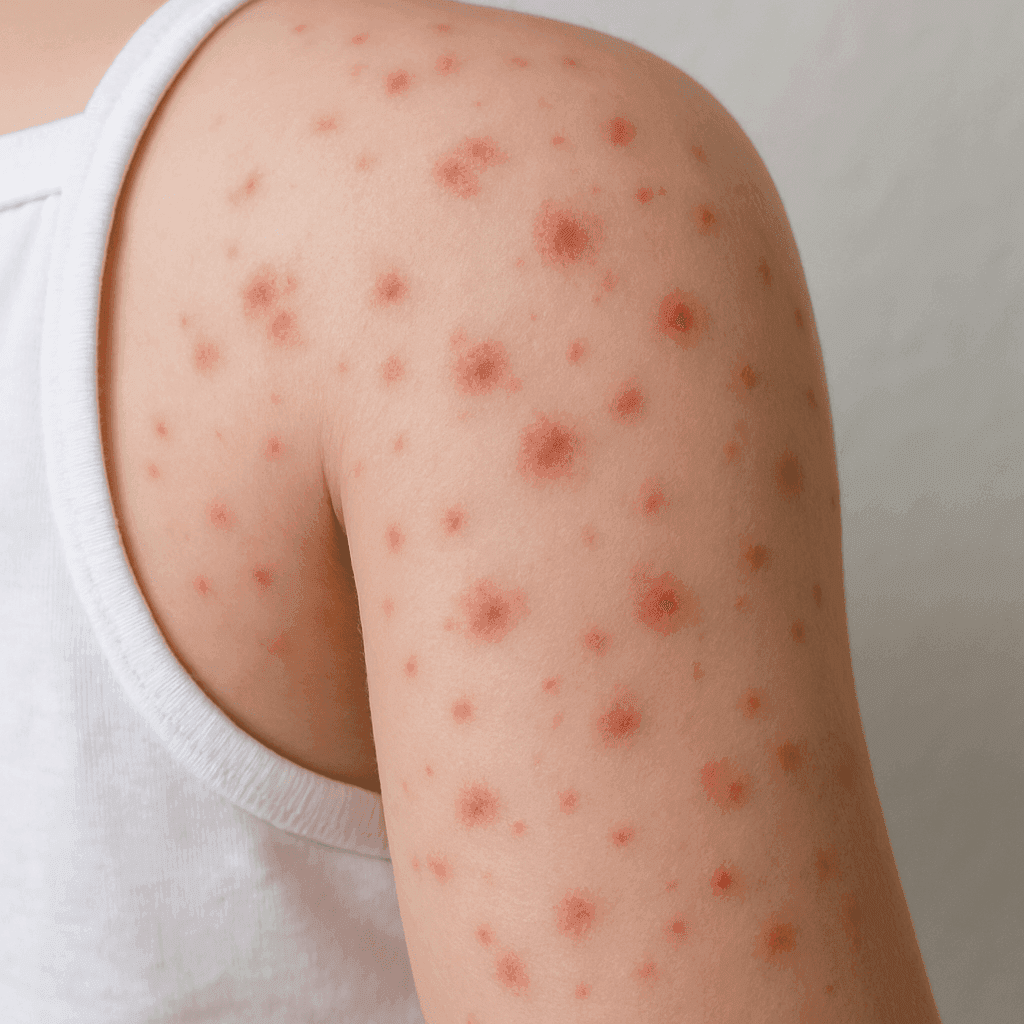Red spots on the skin in a child
Causes, diagnosis and treatment of red spots in children.
Introduction
Red patches on the skin in children can be surprising and distressing for parents. They can have a variety of causes, ranging from harmless allergic reactions to more serious infectious diseases. Early recognition and appropriate treatment are key to keeping your child comfortable and healthy. In this article, we will discuss the most common causes, diagnosis and treatment of red spots on the skin in children.
Possible causes of red spots on the skin in children
Skin allergies
Red patches can result from allergic reactions, which are common in childhood. Symptoms may include itching, redness and swelling. The most common allergens are pollen, animal dander, certain foods and chemicals in cosmetics.
Infectious diseases
Infectious diseases, such as chickenpox or rubella, often manifest themselves with a rash. Chickenpox is characterised by itchy blisters, while rubella is a small, red rash. It is important to be able to recognise these diseases from the skin symptoms.
Eczema and other dermatological conditions
Eczema, also known as atopic dermatitis, manifests as dry, itchy patches. Other conditions, such as psoriasis, can also cause red patches to appear in children. Each of these conditions requires an individual approach and treatment.
Environmental factors
Changes in temperature and humidity can affect a child's skin, leading to red spots. Children's skin is particularly sensitive to weather extremes and environmental pollutants, which can aggravate skin conditions.
Diagnosis of red spots on the skin
When you notice red patches on your child's skin, it is important to consult your doctor. The dermatologist may order various tests, such as allergy tests or blood tests, to identify the cause of the rash. In some cases, a skin biopsy may be necessary for a more accurate diagnosis.
Treatment of red spots on the skin in children
Home treatment
For mild symptoms, home treatment such as moisturising the skin or applying cool compresses can be used. Avoid irritating cosmetics and try to keep your child's skin clean and dry. If symptoms worsen or persist, medical consultation is essential.
Pharmacological treatment
Antihistamines can be used for allergic skin reactions and corticosteroids can be helpful for more severe inflammation. Always follow your doctor's instructions for the use of medication to avoid side effects.
Prevention and prevention
Avoiding known allergens and irritants can help prevent red spots on the skin. A healthy diet rich in vitamins and minerals and regular physical activity support overall skin health. Remember to moisturise your skin regularly and use sun protection.
When to see a specialist
If the red patches on your child's skin are painful, spread quickly or are accompanied by a fever, a dermatologist should be consulted immediately. Other warning signs include difficulty breathing, facial swelling or severe itching.
Summary
Red spots on the skin in children can have many causes, but early recognition and appropriate treatment are key. Regular monitoring of your child's skin condition and consultation with your doctor can help prevent more serious health problems. If you have concerns about your child's skin condition, it is always worth consulting a specialist.

